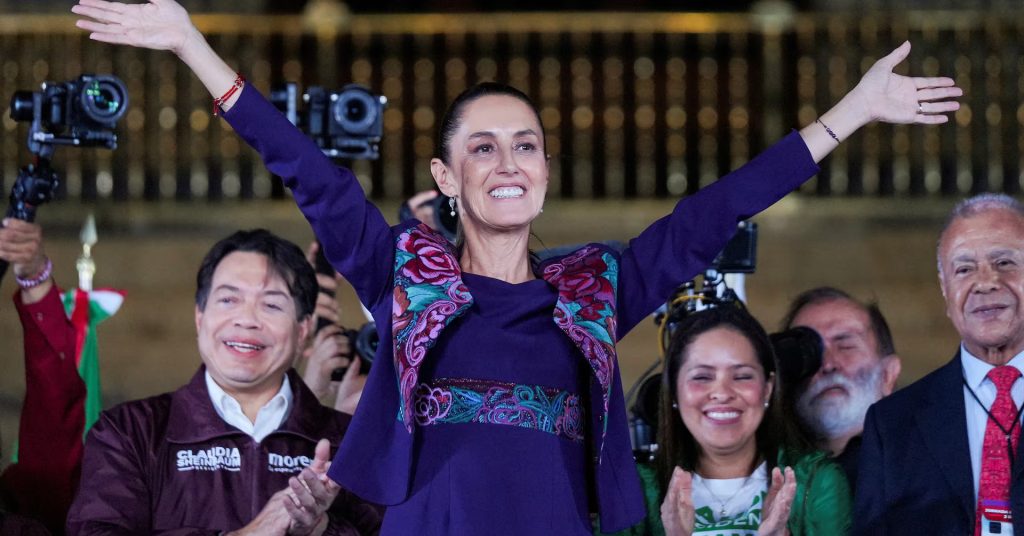
In a historic election, Mexico has chosen Claudia Sheinbaum as its first female president, and the first president of Jewish heritage, marking a significant milestone in the country’s 200-year history. A physicist and engineer, Sheinbaum’s victory was confirmed early Monday, June 3, 2024, by the National Electoral Institute, which announced her irreversible lead.
A Historic Win
Sheinbaum, the favored successor of outgoing President Andrés Manuel López Obrador, garnered between 58.3% and 60.7% of the vote, while her main opposition, Xóchitl Gálvez, received between 26.6% and 28.6%. Jorge Álvarez Máynez trailed with 9.9% to 10.8% of the vote. With this victory, Sheinbaum’s Morena party is projected to maintain its majorities in both chambers of Congress.
Breaking Political and Cultural Barriers
Sheinbaum greeted her supporters in Mexico City’s main square, the Zocalo. Her election represents a break from Mexico’s male-dominated political culture, offering a fresh contrast in style from her predecessor. “I promise that I am not going to let you down,” she assured the crowd.
In addition to being the first female president, Sheinbaum’s Jewish background makes her a unique leader in a predominantly Catholic country. She emphasized the collective nature of her victory, stating, “As I have said on other occasions, I do not arrive alone. We all arrived, with our heroines who gave us our homeland, with our mothers, our daughters, and our granddaughters.”
Continuing a Legacy
Sheinbaum has vowed to continue the populist policies of López Obrador, focusing on addressing economic inequality and providing a robust social safety net. Despite her ties to López Obrador, she is seen as a cool-tempered scientist, bringing a different style to Mexico’s leadership.
Challenges Ahead
While Sheinbaum’s victory is a significant milestone, she faces considerable challenges. López Obrador claims to have reduced historically high homicide levels by 20% since taking office in December 2018, but the real decline appears to be closer to 4%. Many voters, like 34-year-old office worker Julio García, express concerns over crime and safety, feeling that a change in leadership is necessary.
Opposition and Public Sentiment
Main opposition candidate Xóchitl Gálvez, who conceded shortly after the preliminary results, stressed the need for solutions to Mexico’s serious problems. Sheinbaum’s win did not draw the same level of jubilant crowds as López Obrador’s victory in 2018, reflecting a more cautious optimism among the electorate.
A Divided Nation
The election revealed deep divisions in Mexico, similar to the polarization seen in the United States. The country remains split over its security strategy and economic direction. Despite this, nearly 100 million registered voters participated in the election, with a turnout of about 60%.
As Sheinbaum prepares to start her six-year term on October 1, she faces the enormous task of addressing the country’s critical issues, including cartel violence and economic disparity. Her leadership marks a new era in Mexican politics, promising change and continuity in equal measure.







